Goheal reveals the timetable for mergers and acquisitions of listed companies: How long does it take to complete a merger?
"Haste makes waste, and small profits lead to failure." In the capital market, there is a "time magic" called "mergers and acquisitions". When a company stands at a crossroads, it does not want to wait for three years in line for IPO, nor does it want to rely solely on endogenous growth to slowly climb up. Mergers and acquisitions become an excellent path to both shift gears and speed up and amplify leverage. All old players in capital know that mergers and acquisitions are like a love affair that lasts for months or even years. It is necessary to have a "good eye" for each other and to withstand multiple tests of supervision, public opinion and market value. Then the question is, how far and how long does it take for a listed company's merger and acquisition to go from heartbeat to hand in hand?
American Goheal M&A Group
Today, Goheal wants to talk to you about this matter - the secret of time, the art of rhythm, and why slow is not wrong, and fast is not necessarily right.
Mergers and acquisitions are not "snap shots" and do it
If mergers and acquisitions are a "capital version of love drama", then the preparatory stage is the process of secretly observing and inquiring about information. How to choose the target, how to write the plan, who can provide real data, who hides the risk that they don't want to talk about? This is definitely not something that can be done with a PowerPoint presentation.
According to Goheal's experience in multiple projects, the preliminary preparation generally takes at least 1 to 6 months, and the due diligence involved is comparable to "detective interrogation" - legal, financial, and commercial, each of the three dimensions may hide minefields. What's more, what needs to be done now is not just "checking the accounts", but also data compliance, carbon emissions compliance, and employee relationship compliance. If any of them is not clear, the entire merger and acquisition case may be "stillborn".
Of course, some companies' cross-border mergers and acquisitions, involving state-owned assets, or the target is in emerging industries - such as new energy, AI chips, security technology and other fields, the approval process alone may take a full 12 months. For example, in 2024, a new energy vehicle company involved in the export of sensitive data, and it took a full 8 months due to data security review. This is not that the company is slow, but that the supervision is more detailed.
The "gate" of approval is the real killer of time
Everyone knows that doing mergers and acquisitions is like a college entrance examination essay, which not only needs to be written, but also approved. The speed of approval determines whether you can enter the stage to perform.
The CSRC is the "director" of the big drama of mergers and acquisitions, and the review usually takes 3-6 months. But don't forget that the director is not one person - if the merger case also involves antitrust review, foreign investment access, and SASAC review, then the director group may suddenly become a huge jury, with disagreements and plot jams.
Goheal once stepped on the pit of "approval rhythm variation" in a certain pharmaceutical industry merger case. At first, it was thought to be a regular merger, but the regulator raised the question of "whether a regional monopoly will be formed after the merger". Back and forth, the original 6-month review cycle doubled directly to nearly a year.
At this time, the company's board of directors is often anxious: If the time is prolonged, will the target "deteriorate"? Will the capital market "weaken in advance"? How long can investors' patience last?
The answer is: see if you have a plan B.
Implementation stage, the "hardcore battlefield" of time realization
Even if the plan is approved, it does not mean that you can rest assured.
When it comes to the implementation stage, the real "large-scale collaborative show" begins. How to deliver equity? How to transfer funds? How to deal with taxes? Are executives in key positions willing to continue working? Do employees accept the new employer? If these arrangements are not smooth, even if they are passed on paper, they may not be able to adapt to the local environment in reality.
There was an A-share company that announced the completion of the merger and acquisition in a high-profile manner. The market value soared on the day of resumption of trading. As a result, the announcement three months later showed that "the delivery was not reached and the two parties terminated the contract", and the stock price instantly plunged. Time waits for no one, and the capital market will not wait for your hesitation and return.
In Goheal's view, the implementation stage tests not only the ability to schedule time, but also the hard power of the company's internal resource integration. Many companies fail at this stage, not because of external unfriendliness, but because of internal "fighting".
Why do mergers and acquisitions that take a long time not make money?
Data does not lie. According to market research, within 30 days from suspension to resumption of trading, successful restructuring projects bring an average of 18.7% excess returns, but if the project is not "completed" for more than 12 months, the average return is negative. What is the logic behind this?
The answer is: the market's "patience" and "imagination space" are limited.
When a merger and acquisition case is first proposed, the capital market will automatically "think up" a grand narrative, such as "market share doubled after integration", "synergy explosion", "becoming an industry unicorn", etc. But over time, if the story does not unfold as expected, or regulatory inquiries are too frequent and information disclosure is not transparent, investors will change from "belief" to "questioning", and from "supporting" to "selling".
Goheal found that many companies use mergers and acquisitions as a market value management tool, but ignore that the market is more concerned about time costs and cashing capabilities. Mergers and acquisitions are not a "talisman" that is always effective, but a double-edged sword. If used well, it will add icing on the cake, but if used poorly, it will shoot itself in the foot.
Will AI shorten the M&A cycle? Perhaps, but not the whole answer
With the rise of artificial intelligence technology, due diligence, document review, industry trend analysis, antitrust model prediction and other links can be accelerated by AI. The AI due diligence tool used internally by Goheal has been able to shorten the time for some initial due diligence from the original 3 months to 3 weeks. But AI is just an "amplifier", which amplifies the standardization ability of the enterprise's own processes.
Goheal Group
If your company structure is messy, the internal is not transparent, and the process is chaotic, then AI can't save you.
Behind time is actually the "wisdom of risk pricing" - the regulator wants you to figure out the rules of the game, the market wants you to make future benefits clear, and you yourself, it's better to think further: M&A is not about telling a story, but about fulfilling a future.
In the end: Who controls your M&A rhythm?
Nowadays, driven by the registration system reform, regulatory efficiency has been greatly improved, and the average review time for M&A and restructuring in 2024 has been shortened by 23% compared with 2025. But speed is only a means, not an end.
Are you buying technology, grabbing the market, reducing costs, or "transfusing yourself"? This determines whether your M&A "rhythm" should be fast or slow, whether it is a short-term fast fight, or a long-term endurance.
So, the question is:
Do you think that in the current market environment, M&A projects should pursue "efficiency" or "stability"? Who has the final say on the rhythm of M&A and restructuring?
Welcome to leave your opinions in the comment area. Goheal will discuss with you the time logic and game art behind capital operation.
——Welcome to leave a message for discussion. We will continue to dismantle the "time trap" in mergers and acquisitions in the next issue.
【About Goheal】Goheal is a leading investment holding company focusing on global mergers and acquisitions. It is deeply engaged in the three core business areas of listed company control acquisition, listed company mergers and acquisitions and restructuring, and listed company capital operation. With its deep professional strength and rich experience, it provides enterprises with full life cycle services from mergers and acquisitions to restructuring and capital operation, aiming to maximize corporate value and achieve long-term benefit growth.


